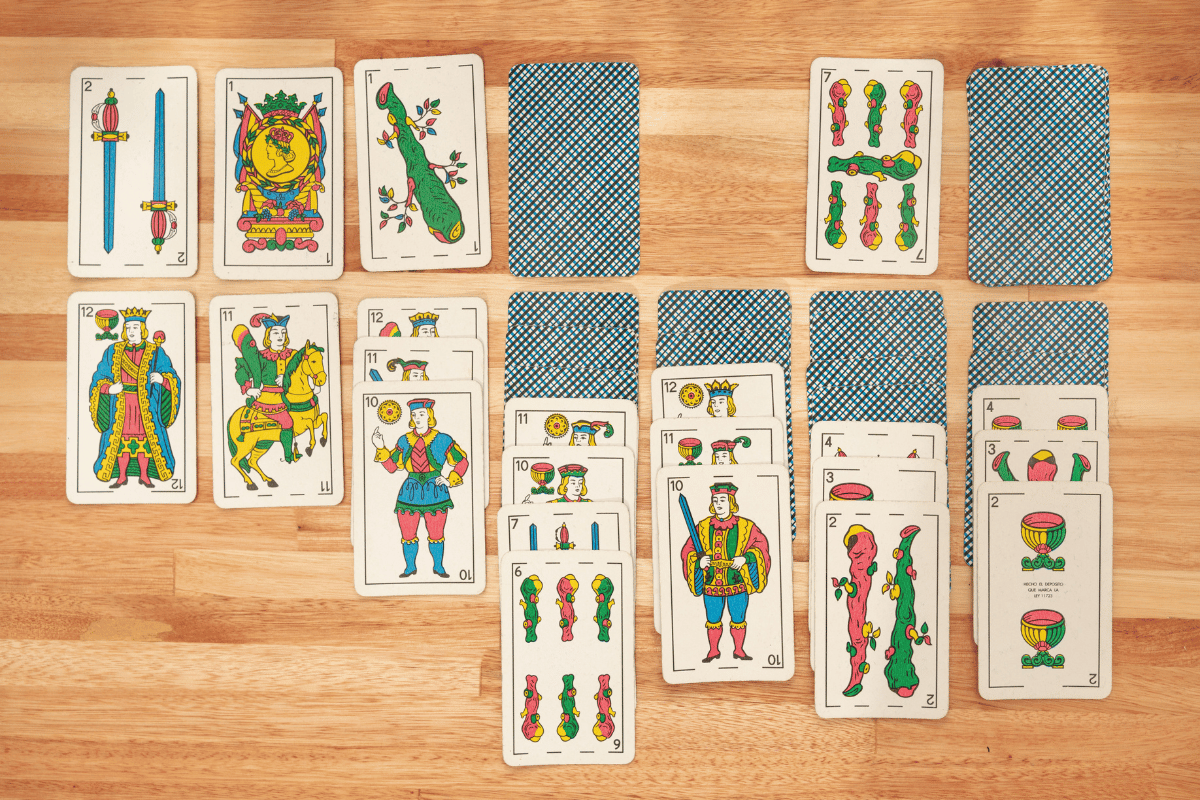The Psychology Behind Solitaire
Table of Contents
Solitaire transcends mere entertainment—it serves as a captivating odyssey through the intricate workings of the mind. Cognitive psychologists extol puzzle-solving virtues, a fundamental aspect of Solitaire, asserting that it augments brain function. With each game presenting a fresh enigma to decipher, outcomes are shaped exclusively by the player’s strategic acumen. This multifaceted engagement stimulates various brain regions concurrently, fostering cognitive versatility and agility. Moreover, the solitary ambiance of solitaire offers players a serene sanctuary to intimately commune with their cognitive faculties, akin to a meditative sanctuary that bolsters mental well-being and resilience, making solitaire games an invaluable tool for holistic cognitive development.
Strategic Thinking and Decision Making
Playing solitaire resembles commanding an army where every card placement mirrors critical decisions. The game constantly challenges players to anticipate outcomes, plan subsequent moves, and adjust strategies in response to an ever-shifting tableau. This mental gymnastic act enhances strategic thinking and decision-making abilities readily transferable to real-life situations. Whether it’s financial planning or problem-solving in the workplace, the dynamic decision-making skills polished at the card table can prove invaluable. Moreover, the iterative nature of solitaire instills resilience, teaching players to persevere through setbacks and adapt their approach until they succeed. Thus, solitaire becomes a game and a training ground for the mind, honing essential cognitive skills that have far-reaching applications beyond the realm of cards.
Stress Relief and Relaxation
The rhythmic pattern of laying down cards and devising victory strategies offers a refreshing escape from life’s bustle—an oasis of calm in a digital desert. Scientific studies have linked card games to lower stress levels, as the mental focus required can divert attention from stressors and generate restful tranquility. Through this avenue of relaxation, solitaire offers sanctuary—a leisurely pursuit that lowers blood pressure, eases anxiety and cultivates a peaceful state of being. Engaging in solitaire becomes a therapeutic ritual, a moment of respite where the mind finds solace amidst the chaos of everyday life.
Improving Memory and Concentration
The nuanced intricacies of solitaire demand unwavering concentration and a good recall of the cards played, thus becoming a continuous exercise for the brain. The practice of juggling multiple card sequences improves working memory and aids long-term recall. Much like a muscle-building strength upon each visit to the gym, the brain’s memory centers—particularly the hippocampus—become more robust with each game. Moreover, the focused immersion in resolving the solitaire puzzle can improve concentration levels, with potential benefits spilling over into professional and educational domains.
Patient Problem-Solving
Patient problem-solving is an art mastered through games like solitaire. Unlike the immediate gratification rampant in many virtual experiences, Solitaire instills a disciplined problem-solving approach. As players navigate the fickleness of the cards, they learn the virtues of patience, attentiveness, and persistence—qualities that are instrumental when addressing complex challenges outside the virtual felt. Adapting to the game’s uniquely paced environment fosters a resolve that can prevail against the most daunting of life’s puzzles. In a world accustomed to instant results, solitaire offers a valuable lesson in delayed gratification and the rewards of perseverance—a skill set indispensable in navigating virtual and real-life obstacles.
Enhancing Cognitive Flexibility
Solitaire’s adaptive trials help shape cognitive flexibility, which is the mental capacity to flip between thinking about one or more concepts simultaneously. Each shuffle presents new patterns to decipher and unexpected challenges to overcome. Players who regularly engage in this mental calisthenics may become more versatile thinkers, able to pivot and adapt more readily to new and unfamiliar situations—at work, in personal relationships, or during other recreational activities. This cognitive agility extends beyond the card table, enhancing problem-solving skills, creativity, and resilience in various aspects of life.
Social Interaction and Solitude
Despite its solitary nature, solitaire can become a social lifeline across the digital divide. Online gaming platforms have crafted communities where aficionados converge, discuss strategies, and share their love for the game. This duality of isolation and community has carved out a unique niche for solitaire in the digital age—offering a retreat for solitary reflection and a network for companionship and shared experiences. What was once a solitary pursuit has transformed into a dynamic social activity, bridging geographical distances and fostering connections among players worldwide.
Technological Impact on Classic Card Games
The advent of the digital era has brought about a profound transformation in traditional games, particularly in the case of solitaire. Once restricted to physical decks of cards, solitaire has undergone a metamorphosis, thriving in the expansive landscape of digital platforms. This shift has democratized access to the game, transcending geographical boundaries and skill levels. With solitaire now readily available to anyone with an internet connection, its enduring appeal as a global pastime is reinforced, underpinned by its cognitive benefits. In the contemporary digital age, Solitaire is more than just a solitary pursuit—it acts as a conduit, fostering connections across generations. Players from many backgrounds and ages get together for a common goal, seeking cerebral stimulation and a sense of peace and relaxation in the middle of the digital cacophony.
Mindfulness and the Present Moment
Amidst the cacophony of contemporary distractions, solitaire emerges as a beacon of present-moment focus. It encourages practitioners to dwell in the ‘now,’ promoting mindfulness—a mental state accredited with reducing stress and improving overall well-being. The synchronization of mind and motion leads to a state of flow where time and worry dissipate, leaving a mindful absorption in the game. As players navigate the intricate patterns of the cards, they find themselves immersed in a serene cocoon of concentration, where the outside world fades into insignificance, and the rhythm of solitaire becomes their sole focus.

